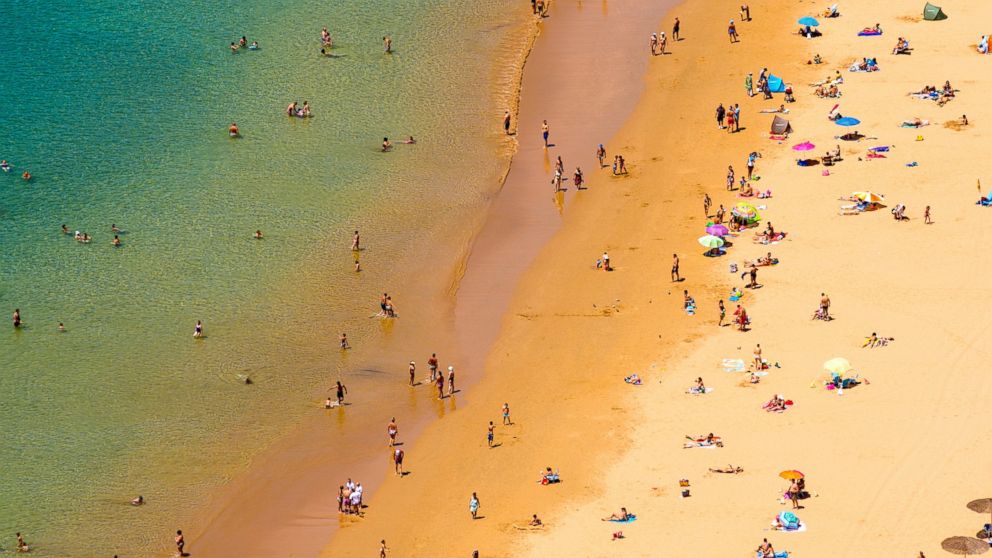Contaminated Sand May Make Beachgoers Sick, New Study Says
Polluted beaches may have both contaminated sand and water.

— -- When beaches are closed due to pollution, a few fearless beachgoers may think that they're safe as long as they remain on land. But a newly published study says even the sand may not be safe from dangerous bacteria, and can potentially recontaminate the water.
Researchers from the University of Hawaii created microcosms of contaminated beaches by making models where both sand and water were tainted with waste water. In the study published this month in Environmental, Science and Technology journal, the researchers found that dangerous bacteria that can cause diarrhea or other gastrointestinal problems for beachgoers remain present in the sand for far longer than they do in the water.
Researchers said further research is needed to restest these results in the field, but they theorized it's possible that contaminated sand may end up a "chronic source" of contamination for water leading to more closed beaches.
"The different decay rates of wastewater bacteria in beach sand and seawater indicate that beach sand needs to be considered carefully in assessing its impact on water quality monitoring and public health," the researchers said in the study.
Dr. William Schaffner, an infectious disease expert from Vanderbilt University Medical School, said the study was interesting and could lead to public health experts focusing more attention on sand than just water when determining which beaches were safe for swimmers.
"There’s a dynamic interface between water and sand," explained Scaffner.
"Fecal indicator bacteria…die off more quickly than they do in the sand, at least some of them do," according to the study findings, said Scahffner. "The sand likely keeps feeding and reintroducing indicator bacteria into the water."
He explained these findings could be particularly relevant in parts of the world where human waste enters lakes or the ocean without being treated.
"This is not trivial because there are many communities in the world where wastewater is…introduced into bodies of water," said Schaffner. "[The study] gives us much more sophisticated sense…of how long [the] natural environment takes to clean up."
Schaffner said average beachgoers shouldn't be too worried this summer. But he cautioned that anyone planning on going to a beach closed due to water quality, should take care to stay out of the water and have a towel to lay down on in the sand.


